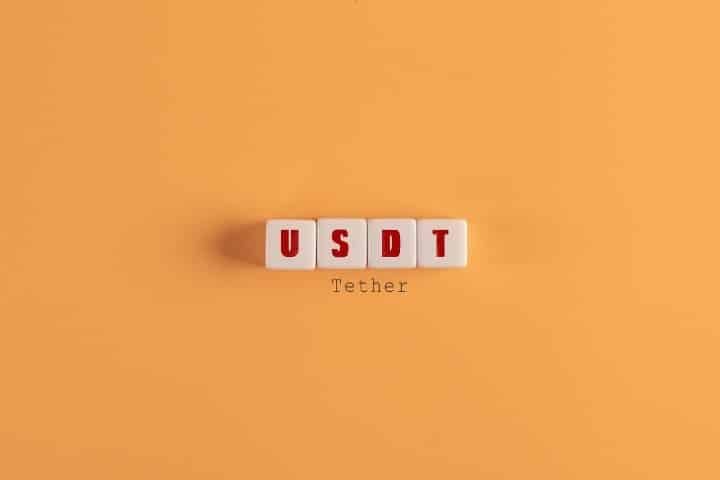
The demise of cryptocurrency giant FTX has sparked speculation of a possible larger collapse approaching. Like FTX, the company involved has one of the largest cryptocurrencies on the market and links to the U.S. government.
The company is Hong-Kong-based Tether, which markets a token by the same name. It is known as a “stablecoin” because it is intended to maintain a consistent price rather than fluctuate as other cryptocurrencies do. The Tether, aka USDT, is equal in value to one U.S. dollar, or to “an extremely liquid, reliable investment like a U.S. treasury bond,” according to Revolver.
The crypto tracker CoinMarketCap.com ranks Tether as the most popular stablecoin, with the third highest market cap of all cryptocurrencies, at more than $65 billion.
However, last year Protos reported that “over two-thirds of all Tether minted across multiple years went to just two crypto companies — Alameda Research and Cumberland Global.”
Alameda was the FTX parent company and hedge fund that, along with FTX, declared bankruptcy on November 11. According to industry sources, FTX had issued billions of its own counterfeit tokens (FTT) to prop up Alameda’s balance sheet and make it appear liquid.
In the meantime, FTX founder Sam Bankman-Fried (SBF) had outpaced all Democratic donors — except for George Soros — since 2020. FTX’s partnership with Ukraine (to help raise money for that country’s war chest) has many wondering if Biden’s billions in taxpayer aid to Ukraine ended up funding Democratic midterm campaigns via FTX.
Have Tether proceeds met the same end?
As of August 2021, “Alameda was Tether’s second-largest customer and received over $36 billion worth of Tether directly from Tether Ltd.” Alameda also “accounted for 37% of all outbound volume.”
FTX-Tether Ties
Protos reported other “uncanny connections,” including the fact that SBF founded FTX on May 8, 2019, the same day that Tether launched a $1 billion fundraiser. Additionally, though most “large crypto exchanges prefer proprietary stablecoins,” FTX never issued its own. It used Tether instead.
In May of 2021, one of Alameda’s top executives, Ryan Salame, told TrustNodes, “I’ve been minting/redeeming USDT on an institutional scale for over 3 years.”
Though Tether now claims it faces “no risk” from the FTX downfall, the ties between the two companies were indeed strong. Protos is impressed that Tether has held its value despite “the bankruptcy of its once-second-largest customer along with “two multi-hundred million dollar bets on its demise.” (The latter refers to attempts to short Tether “during the initial panic amid FTX’s collapse.”)
Opaque Financials
It is a curious situation, since Tether has been promising a yet-to-materialize audit since 2017. This August, The Wall Street Journal headlined with “Tether Says Audit Is Still Months Away as Crypto Market Falters.”
If the audit ever happens, the results are sure to make headlines, good or bad. In October of last year Bloomberg asked, “Anyone Seen Tether’s Billions?” and summarized the situation this way:
As far as the regulators are concerned, the size of Tether’s supposed dollar holdings is so big that it would be dangerous even assuming the dollars are real. If enough traders asked for their dollars back at once, the company could have to liquidate its assets at a loss, setting off a run on the not-bank. The losses could cascade into the regulated financial system by crashing credit markets. If the trolls are right, and Tether is a Ponzi scheme, it would be larger than Bernie Madoff’s.
Meanwhile, the company has been getting away with publishing attestations — less stringent reviews of reserves and liabilities — which can be “used to paint an unduly rosy picture,” explains The Wall Street Journal. For example, a “2017 attestation of Tether was skewed by its sister company, Bitfinex, transferring $382 million to its bank account, hours before the accountants checked the numbers.”
Tether has also paid hefty fines for fraudulent attestation claims. “The Commodity Futures Trading Commission accused Tether of falsely claiming that it backed each of its crypto tokens with an equivalent amount of U.S. dollars,” reported The Wall Street Journal in October 2021. That was a $41 million penalty.
Additionally, earlier last year CNBC announced that Tether and its Bitfinex exchange paid an $18.5 million fine to the state of New York for misrepresenting reserves. The companies are now banned from conducting trading activity there.
Nothing to See
Yet Tether seems to maintain itself in overall good relations with the federal government. Though it defied U.S. sanctions on Tornado Cash, a crypto service that allowed users to launder money and hide stolen assets, The Washington Post reported in August that “so far, the U.S. government has not taken action” against Tether. The Treasury Department declined to answer the Post’s inquiries about the matter.
In light of Tether’s past, Revolver asks the obvious question: “So, what remarkable financier is behind this arrangement?” It answers that by compiling a short dossier on each of the Tether bigwigs.
First, there is founder Brock Pierce, a former child actor with connections to Jeffrey Epstein. Next comes Tether’s CEO, Jean-Louis van der Velde, described by Financial Times as once heading a company that ran into legal trouble in China over unpaid bills and tax issues. And lastly is Giancarlo Devasini, Tether’s CFO, a former plastic surgeon turned tech entrepreneur who has had legal problems in the past with various entities, including Microsoft and Toshiba.
Despite all this, Tether is holding its own in the world market. Myanmar’s U.S.-backed government-in-exile, which was overthrown in a military coup last year, officially adopted Tether for domestic use and is using it to raise funds to “topple the ruling military government,” according to Al Jazeera.
“The al-Qaeda affiliated Sunni rebel groups of Syria also just so happen to love Tether,” notes Revolver, citing a Wired column from March 2021.
“Remember the infamous Wikileaks-released email in which Hillary Clinton acknowledged Al-Qaeda is on our side in Syria? If only there were a mechanism to quietly launder money to these US backed groups with deniability!” Revolver ponders. It also calls Tether the “cryptocurrency of choice” for drug cartels and reports that Tether’s demand “skyrocketed in Ukraine” after the Russian invasion in February.
The international connections, the shady financials, the odd leadership, the questionable business practices, the close relationship with FTX, and Tether’s seemingly untouched well-being in the wake of the FTX bankruptcy leave many wondering: Is Tether truly invincible, is it simply too big to fail, or will corruption eventually bring about its downfall? If collapse is in its future, how many countries — including the United States — will it incriminate in its scandal?




